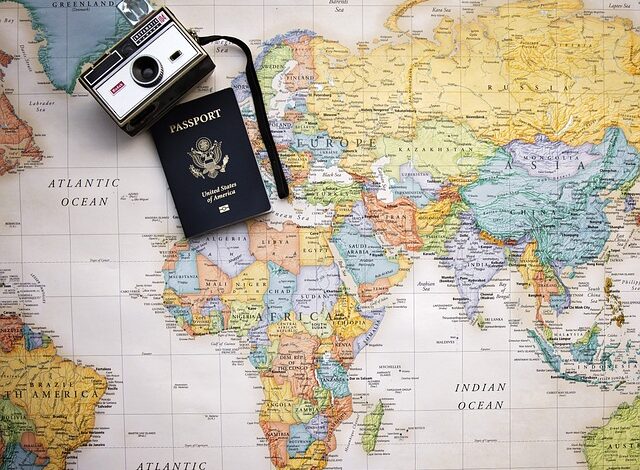How to Get Travel Insurance for a Gap Year in the UK

Taking a gap year is an exciting opportunity to explore new cultures, gain life experiences, and broaden your horizons. Whether you’re planning to backpack across Europe, volunteer in Africa, or work abroad, having the right travel insurance is essential to ensure your safety and peace of mind throughout your journey. In the UK, there are numerous travel insurance options tailored specifically for long-term travelers, including those embarking on a gap year. This article will guide you through the process of getting comprehensive travel insurance for your gap year adventure.
Why Do You Need Travel Insurance for a Gap Year?
Travel insurance provides financial protection against unforeseen events that could disrupt your trip or put you at risk while traveling. For a gap year, which often involves multiple destinations, extended stays, and various activities, travel insurance becomes even more critical. Here’s why:
- Medical Emergencies : If you fall ill or get injured abroad, medical treatment can be expensive, especially in countries without universal healthcare.
- Trip Cancellations or Interruptions : Unexpected circumstances like family emergencies, natural disasters, or political unrest may force you to cancel or cut short your travels.
- Lost or Stolen Belongings : Luggage theft or loss is common during long trips, and replacing essential items can be costly.
- Adventure Activities : Many gap year travelers engage in adventurous pursuits like skiing, scuba diving, or bungee jumping, which aren’t always covered by standard policies.
- Personal Liability : Accidents happen, and if you accidentally cause harm to someone else or damage property, liability coverage can protect you from legal costs.
Types of Travel Insurance for a Gap Year
When shopping for travel insurance, it’s important to choose a policy designed for long-term travel. Here are the main types of coverage available:
1. Backpacker Insurance
- Specifically designed for gap year travelers and backpackers.
- Covers multi-destination trips over extended periods (typically up to 18 months).
- Often includes provisions for working holidays and volunteering abroad.
2. Annual Multi-Trip Insurance
- Ideal if you plan frequent trips within a year.
- May not cover continuous travel but works well for shorter visits spread out over time.
3. Single-Trip Insurance
- Suitable for shorter journeys to one destination.
- Not recommended for gap years unless you’re visiting only one country for the entire duration.
4. Specialized Gap Year Policies
- Tailored for students taking a break from education.
- Includes benefits like coverage for unpaid internships, study programs, and volunteering projects.
Steps to Get Travel Insurance for Your Gap Year
1. Assess Your Needs
Before purchasing a policy, consider the following factors:
- Destinations : Will you visit multiple countries? Are any of them high-risk areas?
- Duration : How long will your trip last? Some insurers impose limits on the length of coverage.
- Activities : What kind of activities do you plan to participate in? Adventure sports often require additional coverage.
- Budget : Determine how much you’re willing to spend on premiums versus potential claims.
2. Research Providers
In the UK, several reputable insurers offer specialized gap year travel insurance. Popular choices include:
- True Traveller
- Endsleigh
- Post Office Travel Insurance
- Aviva
- InsureandGo
Use online comparison websites like MoneySuperMarket or Compare the Market to compare quotes and features.
3. Check Policy Details
Once you’ve narrowed down your options, review each policy carefully. Look for:
- Medical Coverage : Ensure it meets the requirements of the countries you’ll visit (e.g., EHIC/GHIC for EU countries).
- Activity Inclusions : Verify whether your planned activities (e.g., skydiving, hiking) are covered.
- Baggage and Personal Belongings : Check the maximum payout for lost or stolen items.
- Emergency Assistance : Confirm the insurer offers 24/7 support in case of emergencies.
- Exclusions : Be aware of what isn’t covered, such as pre-existing medical conditions or acts of terrorism.
4. Declare Pre-Existing Conditions
If you have any pre-existing medical conditions, disclose them upfront when applying for insurance. Failure to do so could invalidate your policy later. Some insurers specialize in covering individuals with health issues, though premiums may be higher.
5. Purchase Early
Buy your travel insurance as soon as you book your flights or accommodations. Most policies begin covering you immediately upon purchase, protecting you against cancellations or other issues before departure.
Additional Tips for Gap Year Travel Insurance
- Document Everything
- Keep digital copies of your policy documents, passport, visas, and important receipts.
- Take photos of your belongings before you leave to prove their value in case of theft or damage.
- Understand Local Laws
- Research visa requirements, driving laws, and local customs to avoid unnecessary complications.
- Some policies won’t cover incidents resulting from illegal activities or violations of local regulations.
- Extend Your Coverage
- If your plans change mid-trip, contact your insurer to extend your policy rather than risking being uninsured.
- Consider Add-Ons
- Optional extras like gadget insurance, winter sports coverage, or hazardous activity riders can enhance your protection.
- Stay Updated
- Monitor travel advisories issued by the Foreign, Commonwealth & Development Office (FCDO) to stay informed about safe travel zones.
Common Mistakes to Avoid
- Choosing Cheapest Over Best Value
- Opting for the lowest-priced policy might save money initially but could leave you underinsured in critical areas.
- Ignoring Fine Print
- Failing to read terms and conditions can lead to unpleasant surprises when filing a claim.
- Not Declaring Activities
- Assuming your policy covers all activities can result in denied claims if something goes wrong.
- Forgetting Renewals
- Letting your policy lapse midway through your trip leaves you vulnerable to risks.




